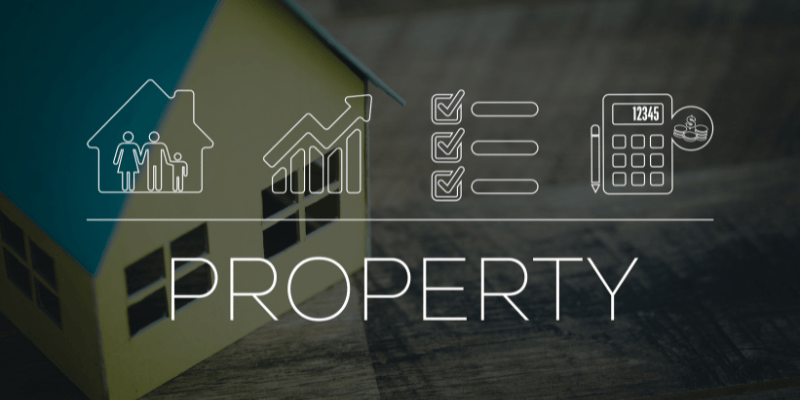Landlord Duties: How Much of a Commitment is it?
Ever dreamt of trading in your 9-to-5 for the landlord life? Imagine collecting rent checks as passive income while property values steadily climb. It’s an enticing vision, but how much of a commitment is it to become a landlord?
You might have heard tales from seasoned landlords, painting a rosy picture of leisurely mornings sipping coffee instead of commuting. But you’ve also likely heard horror stories about midnight emergency maintenance calls and complicated tenant disputes.
Becoming a property owner isn’t just buying rental properties and waiting for the cash to roll in; it’s juggling multiple roles – negotiator, repairman, legal expert. Every potential problem becomes yours to fix or hire someone else to handle.
Being a landlord isn’t just about collecting rent. It’s about the hours spent managing properties, figuring out how to navigate the maze of regulations, and more.
Table of Contents:
- Understanding the Commitment of Becoming a Landlord
- The Financial Implications of Being a Landlord
- Managing Tenant Relationships and Legalities
- The Role of Property Management Companies
- Renovations and Their Impact on Property Value
- Expanding Your Real Estate Portfolio
- Conclusion
Understanding the Commitment of Becoming a Landlord
Becoming a landlord isn’t just about collecting rent checks and watching your investment grow. It’s much more than that—it involves commitment, time, and understanding both property management and residential leasing.
You’re not just a property owner; you become part-manager, part-maintenance crew, part-lawyer navigating through landlord-tenant laws. When issues pop up like maintenance requests or missed rent payments, they need to be addressed promptly which adds to the time commitment involved.

Assessing Your Readiness for Landlording
Do you feel equipped to take on the responsibilities of being a landlord? Are you ready for late-night emergency maintenance calls or managing rental agreement disputes?
If ‘no’ is your answer then don’t worry. WJD Management, with over 40 years’ experience in Northern Virginia Property Management can help. They have been successfully dealing with tenant issues as their ONLY business since 1985.
The biggest mistake potential landlords make is underestimating the amount of work involved in owning rental properties. From screening prospective tenants before signing an agreement to keeping track of housing costs such as property taxes – it’s definitely not passive income.
Making Your Investment Work For You
To see positive cash flow from your real estate investment requires strategic planning from day one. Remember every decision impacts whether it becomes free rental income source or unexpected costs eat into your monthly earnings.
This includes but isn’t limited to regular inspections on multiple properties ensuring upkeep while keeping an eye out for any changes affecting local urban development impacting future property values. Investment properties typically do require a steady stream of attention and resources.
The Financial Implications of Being a Landlord
Embarking on the landlord journey involves more than just collecting rent checks. You’re stepping into an investment arena where financial fluency is crucial.
Making Your Investment Work For You
Entering the realm of property ownership can be a profitable venture, yet it’s not as straightforward as simply expecting periodic payments. It’s essential to understand how cash flow works in relation to rental properties and real estate investments.
Rental income is your primary source of revenue, which should ideally exceed housing costs such as maintenance issues or unexpected repairs, property taxes, and mortgage payments if any. Managing these expenses effectively while maintaining positive cash flow could turn your property purchase into an attractive asset.
A surprising benefit lies within the realm of tax deductions. Did you know that landlords often enjoy potential benefits like deducting interest from mortgages or credit cards used for purchasing or improving their properties?

An additional factor that contributes positively towards cash flow is consistent increase in property values over time; we’ve seen upswings regularly year after year according to national data reports.
Potential tenants are also key contributors towards healthy finances. A properly screened tenant who pays rent promptly ensures steady stream of passive income without unnecessary stress related with missed rent payments and legal process involved during evictions.
With proper planning and management strategies – becoming a landlord might be one profitable venture worth considering.
Managing Tenant Relationships and Legalities
When you become a landlord, one of your key responsibilities is managing tenant relationships. This isn’t always an easy task, but it’s vital for maintaining peace in your rental properties. The first step is effective screening of tenants.
Screening prospective tenants helps to ensure that they are responsible and reliable individuals who will respect the property and adhere to the terms of the rental agreement. Local laws often guide this process, so familiarizing yourself with these regulations can help avoid potential legal issues down the line.
Missed rent payments are another common issue landlords face. It’s crucial to handle such situations delicately yet firmly, respecting both tenant law and eviction processes if necessary. Your approach here sets a precedent for future interactions with all your tenants.
Navigating Through Tenant Issues
Tenant issues come in various forms – late rent payments or lease violations being some common ones. When dealing with these challenges, communication is essential.
If rent payment is late, reach out to them politely but assertively. Ask about any difficulties they might be facing that led to missed payments while also reminding them about their contractual obligations as per local laws. Handling such cases professionally reduces stress on both sides while ensuring smooth operations at your property.
In case of lease violations like unauthorized pets or excessive noise levels affecting other residents’ comfort, issuing a notice before resorting to eviction measures is warranted. Eviction should ideally be a last resort since it involves a time-consuming legal process.
- You need strong people skills alongside knowledge about housing laws when managing tenant relations.
- Do not be hesitant to look for expert assistance if matters become complicated.
- Remember: A good relationship between landlord and tenant contributes to the property’s positive atmosphere.
The Role of Property Management Companies
As a proprietor, you may discover yourself overpowered by the numerous duties that accompany possessing rental property. This is where a property management company steps in to ease your burden.

When to Consider a Property Management Company
If time commitment becomes an issue or if tenant issues start consuming more of your day than you’d like, it might be time to think about hiring professionals. Property managers can handle everything from marketing properties and coordinating maintenance requests, allowing landlords to focus on their other obligations.
Property management services aren’t just for large-scale investors either. If you’re juggling full-time work while trying to manage property on the side, or live far away from your rentals – these companies can give invaluable help.
Hiring a professional also lets you tap into their knowledge about local landlord-tenant laws and housing costs – helping avoid potential legal pitfalls and ensuring fair rent prices for tenants based on market trends. Plus, they are skilled at screening prospective tenants which ensures quality occupants for your investment.
Beyond just collecting rent checks each month though; effective property upkeep involves regular inspections as well as emergency maintenance when required – tasks which could become overwhelming if not handled properly by experienced personnel.
In essence, using such service provides peace of mind knowing that all aspects related to managing rental properties are being taken care of diligently – letting landlords enjoy passive income without undue stress involved in direct landlording activities themselves.
Renovations and Their Impact on Property Value
It’s also about maintaining, improving, and even boosting your property values through strategic renovations.
Boosting Your Property’s Value Through Renovations
A well-planned renovation can significantly increase the value of your rental property. From updating an old kitchen to adding energy-efficient windows or enhancing curb appeal with landscaping – every bit helps.
The biggest mistake some landlords make is assuming that all renovations are equal when it comes to increasing property value. This couldn’t be further from the truth. Realizing which upgrades will provide the most value for your money is essential.
If we examine the evolution of real estate over time, properties with noteworthy renovations have experienced an uptick in their market value. Moreover, these changes positively impact neighborhood values as well.
Renting out a modernized home not only allows you to ask for higher rent payments but also attracts quality tenants who will take good care of your investment because they appreciate its worth.
As landlords ourselves at WJD Management, we’ve personally experienced how targeted updates could boost both rental income and overall asset appreciation. However, before diving into any major overhaul project remember – knowledge is power.
- Start by researching local housing costs and trends,
- Evaluate if expected increases in monthly income outweighs the cost of renovations,
- Determine whether this work might elevate your tax bracket due to increased property taxes.
This approach ensures that every penny spent brings positive cash flow while maximizing your real estate investment. Remember, the goal is to create a win-win situation – happy tenants and an ecstatic landlord.
Expanding Your Real Estate Portfolio
Becoming a landlord is more than just owning one property. It’s about growing your real estate portfolio to maximize your monthly income and increase wealth over time. So, let’s talk strategy.

Navigating the Path to Multiple Properties
Consider what type of properties would be suitable for your interests when navigating the path to multiple properties, such as commercial or residential and their proximity to public transportation. Are they commercial properties or residential? Proximity to public transportation can impact rental rates and tenant interest significantly. Thorough consideration and preparation are essential for this endeavor.
Your ability to purchase additional investment properties typically depends on positive cash flow from existing ones. Hence, keeping an eye on rent payments is crucial – missed rent checks could mean trouble for your expansion plans. And remember that expanding also means dealing with more tenants – screening prospective tenants becomes increasingly important as does resolving maintenance requests promptly.
The biggest mistake people make when looking at potential rental properties is underestimating costs such as property upkeep, emergency maintenance, taxes etc., so always factor these into your calculations before making a property purchase decision. Here’s a useful guide that dives deep into this topic.
If managing multiple rentals sounds daunting (because yes, being a landlord involves substantial time commitment), don’t worry. There are professional management companies like WJD Management who specialize in taking care of all the nitty-gritty details involved in managing property while letting you focus on growing your portfolio even further.
Conclusion
Having established the question of how much commitment is involved in becoming a landlord, let’s review our findings.
Being a property owner isn’t just about collecting rent checks. It’s juggling multiple roles and responsibilities. Your tenants’ issues? Yours to handle or find help for. Unexpected costs or maintenance requests? They’re on your plate too.
Rental properties can be profitable investments but require diligent upkeep and strategic planning. Remember, it’s not just buying property; it’s boosting value through renovations that counts towards positive cash flow.
The financial implications are clear – from rental income to tax benefits – but they come with their fair share of challenges like missed rent payments or evictions.
You may consider hiring a management company if managing becomes overwhelming. And as you grow more comfortable in your role as landlord, expanding your real estate portfolio might become an enticing option!
If you are ready to hire a professional property manager, feel free to take advantage of our exclusive FREE Rental Market Analysis. Finally, don’t forget to connect with us on social media! Follow us on Facebook, Twitter, LinkedIn, Instagram, and Pinterest for tips, ideas and updates


